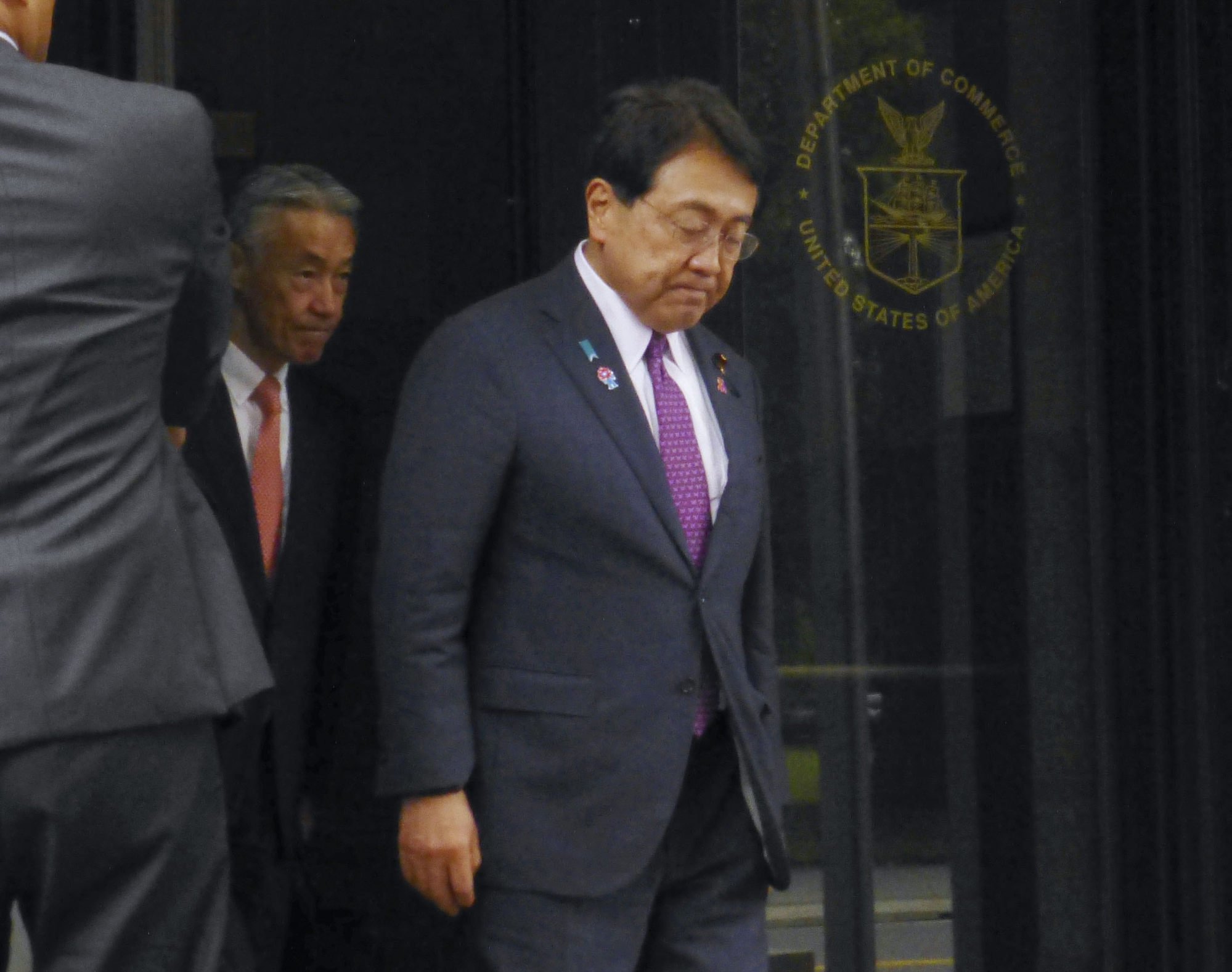Japan races against time to avoid US car tariffs as deadline looms
Japan’s top envoy flew to Washington for last-ditch talks, but Trump’s ‘Dear Mr Japan’ remarks signal a tough road ahead

Japan’s top negotiator has made a last-ditch trip to Washington in hopes of heading off a steep US tariff on Japanese cars – but with just over a week to go, and President Donald Trump doubling down in recent comments, analysts say neither side appears willing to compromise.
Ryosei Akazawa, Japan’s chief trade envoy on the issue, flew into the US capital on Thursday and spoke twice to Commerce Secretary Howard Lutnick by phone over the weekend. But he failed to secure a meeting with Treasury Secretary Scott Bessent or make any clear progress.
Trump announced earlier this year that he would increase the tariff on imported vehicles from 2.5 per cent to 27.5 per cent – a move that was temporarily paused for 90 days to allow negotiations. That window closes on July 9, and signs suggest Trump is prepared to let the tariff take effect.
In an interview on Fox News broadcast on Sunday, Trump said he had no plans to scale back the tariffs and that letters detailing his administration’s demands would be sent to Japan and other trade partners “starting pretty soon”.
“I could send one to Japan. Dear Mr Japan, here’s the story. You’re going to pay an extra 25 per cent tariff on all your cars,” Trump said on Fox.
“They won’t take our cars and yet we take millions and millions of their cars into the United States,” he complained.
“It’s not fair. I explained that to Japan and they understand it. And we have a big deficit with Japan and they understand that too.”

While Japan was unhappy when the US doubled tariffs on Japanese imports of steel and aluminium to 50 per cent in early June, there is even greater concern about the critically important auto sector, analysts say.
“For Japan, the auto sector is most definitely the most important thing,” said Martin Schulz, chief policy economist at Fujitsu’s Global Market Intelligence Unit.
“There can be no solution on trade in general unless auto tariffs are significantly lower,” he told This Week in Asia. “Japan and the rest of the world adjusted to the 10 per cent tariff on all imports that was announced, but anything beyond that is simply a no-go for Japan.”
According to Schulz, it is not simply a question of the impact of tariffs on the profits of Japanese car manufacturers, as vehicles account for fully one-third of all Japanese exports, while 8 per cent of all jobs in Japan are in some way linked to the auto sector or its extended supply chain.
The substance of Akazawa’s discussions with the Trump administration has not been confirmed, although Schulz points out that the British government was able to carve out an exception on exports of British-built cars to the US, albeit on a far smaller scale than Japanese exports, while German car makers are discussing a more beneficial quota system linked to greater investment in manufacturing in the US.
Japan has not been able to achieve that sort of breakthrough in part because of the sheer number of vehicles sold in the US – about 4.72 million in 2024 – but also because of the uncertainty in Japanese politics due to the July 20 House of Councillors election, which may well usher in a new government with new approaches to the US.
“What we may see is a framework of an agreement before July 9 with the details filled in later,” Schulz said, thereby enabling Japanese firms to avoid the tariff increase. But that would be hard to predict with any certainty when considering Trump’s approach to politics, he added.
Takaki Nakanishi, CEO of the Tokyo-based Nakanishi Research Institute and a specialist in the auto sector, said the 27.5 per cent tariff was “ridiculously high” and should be cancelled – but he was confident that Japanese firms would be able to ride out the challenges should it be imposed.
“I think I expected this situation, so I am neither pessimistic nor optimistic,” he said. “The Japanese government is working hard to get its message across, but I do not think they are able to make their point.”
Tokyo has gone to great lengths to emphasise that Japanese firms are larger investors in the US, with manufacturing plants across the country employing hundreds of thousands of people. Many of these companies are in the auto sector and already contributing to the US economy.
Japan has also played up its role as a key security ally in the Asia-Pacific, critical to resisting the challenges posed by China, North Korea and Russia.

None of those points appear to have hit home, however, and Nakanishi expects the new tariff rate to be imposed on Japanese cars in a few days’ time.
“Everybody thinks that the tariff rate is ridiculously high, but no Japanese car firms are thinking of leaving the US market,” he said. “Japanese car makers will try to make further cost reductions and work hard to maintain good relations with their US partners, while still benefiting from the cars that are actually built in the US.”
That would give Japanese firms a distinct advantage over makers from other countries, such as South Korea, he added.
“This could be a chance to increase brand volume and market share in the US and these tariffs could even trigger growth in the US market by encouraging Japanese competitiveness,” he said.
“There will be short-term pressures on profitability, but firms can offset that and I am far more optimistic about the long-term outlook in the US.”